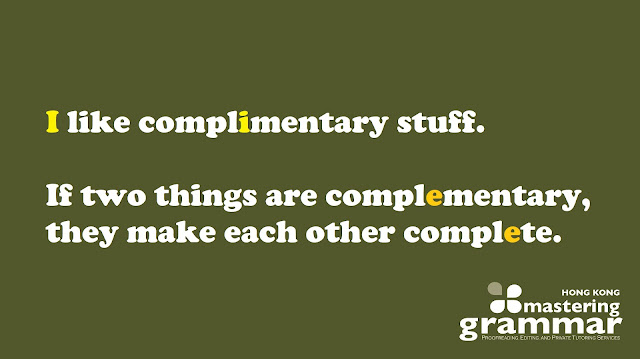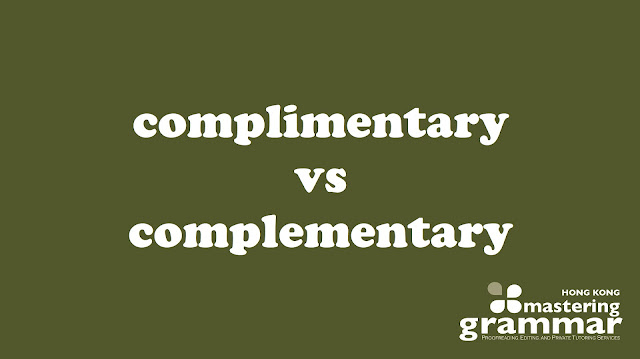Complimentary and complementary are two adjectives that are often confused. They look similar and sound the same (both are pronounced /ˌkɒmplɪˈmentri/ or /ˌkɒmpləˈmentri/), but their meanings are completely different. This blog post will help you get it right.
The Difference between Complimentary and Complementary
Complimentary (with an I) means 'flattering' or 'favourable':
✅ My teacher made some complimentary remarks about my English.
✅ The pianist's recording of Chopin's two concerti received a complimentary review from the country's most famous music critic.
✅ Everything I have heard about you and your work has been complimentary.
Complimentary also means 'free of charge':
✅ I have been given two complimentary tickets to the concert.
✅ Every participant will receive a complimentary bottle of champagne.
Complementary (with an E) is used to describe two different things that go well together:
✅ Our complementary skills and experiences are what make us a great team.
✅ The two universities will draw on their complementary strengths to develop and offer world-class degree programmes to students.
Tips for Remembering the Difference between Complimentary and Complementary
 |
| The spelling difference can act as a helpful mnemonic device. |
I hope you found this content helpful in your English learning journey. If you did, please consider buying me a coffee. Your support keeps this blog running and is greatly appreciated!
Examples from the Media
China's movie moguls see online video apps as complementary to cinemas. —South China Morning Post (2018)
Nearly a quarter of GPs said in a survey that they had used some form of complementary or alternative therapy. —The New Zealand Herald (2003)
Recommended Further Reading
Real-World Examples of Misuse
 |
| 1. The past participle written should be used to form the passive. (The letter was written to a friend by you.) 2. A complimentary close, also known as a complimentary closing, refers to the words that conventionally come before the writer's signature at the end of a letter or email, e.g. Yours sincerely and Yours faithfully. 3. A dangling participle is a participle (in this case, writing) that is unintentionally modifying the wrong noun or noun phrase (in this case, the complimentary ending) in a sentence. |









0 Comments